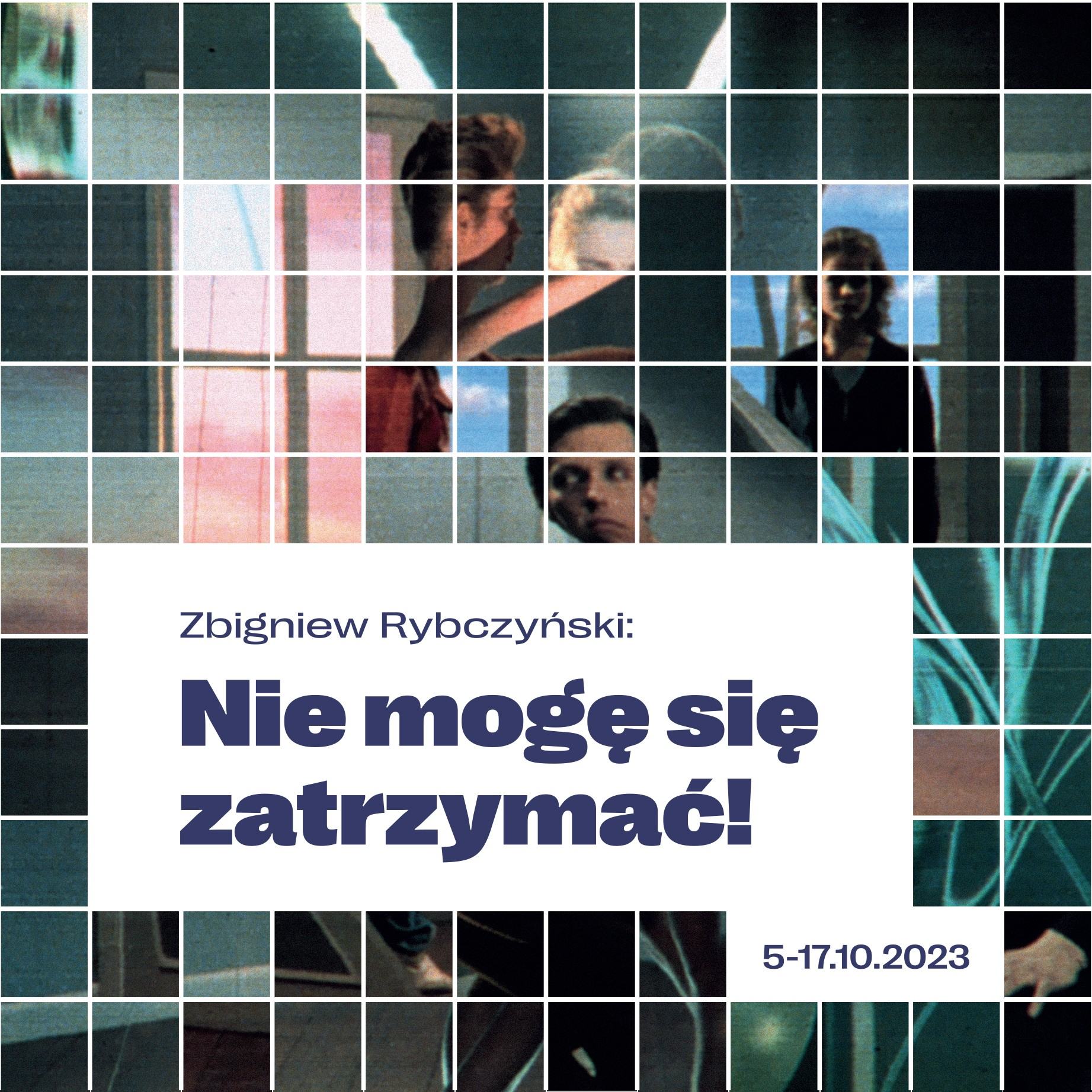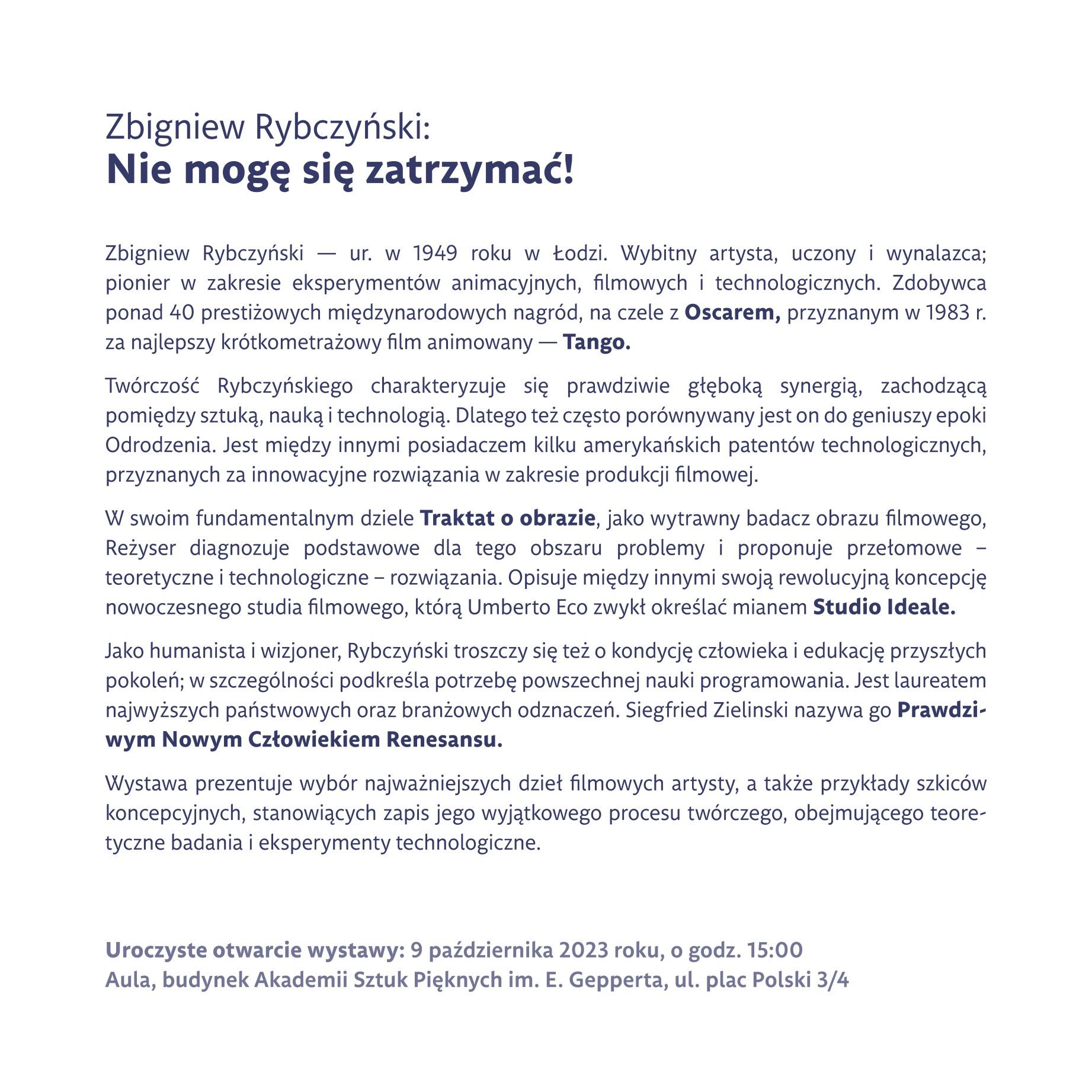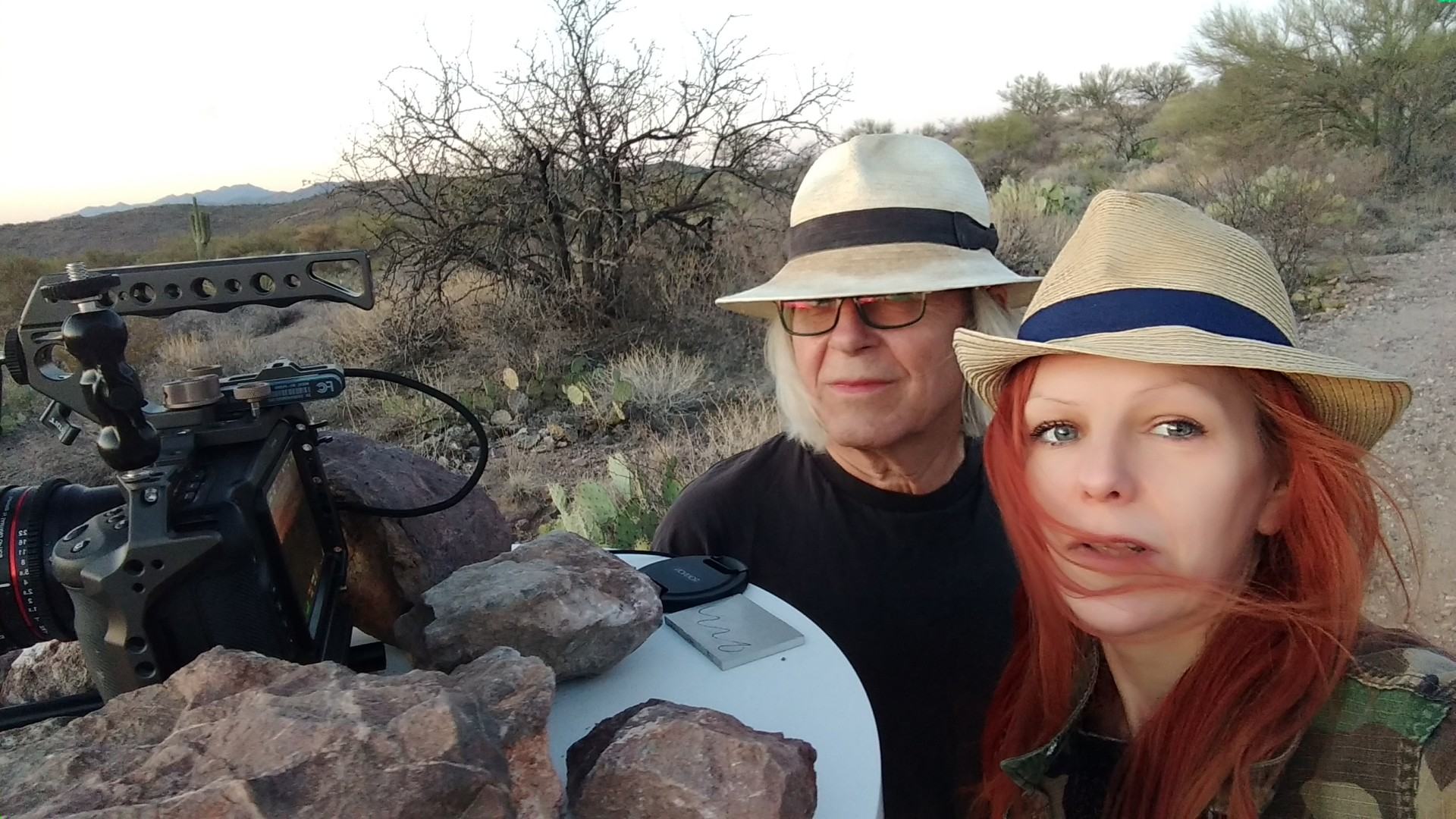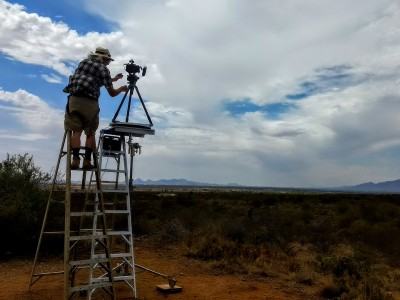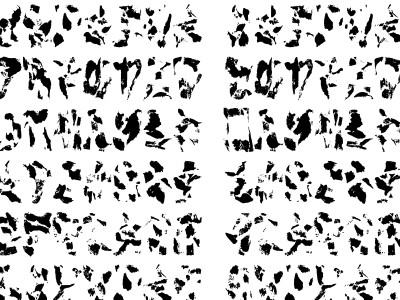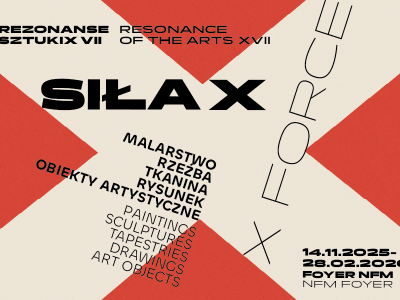Zbigniew Rybczynski: I can't stop myself!

Aula, budynek główny Akademii Sztuk Pięknych im. E. Gepperta we Wrocławiu
Pl. Polski 3/4
Wrocław
We invite you to the exhibition inaugurating the academic year 2023/24 related to the awarding of Zbigniew Rybczynski with the title of Doctor Honoris Causa of the E. Geppert Academy of Art and Design in Wroclaw.
Zbigniew Rybczynski is an outstanding artist, scientist and inventor; a pioneer in film, animation and technological experiments. He has won more than 40 prestigious international awards, led by the Oscar, awarded in 1983, for the best animated short film Tango. Rybczynski's work is characterized by a truly profound synergy occurring between art, science and technology. This is why he is often compared to the geniuses of the Renaissance era. Among other things, he is the holder of several U.S. technology patents, awarded for innovative solutions in film production. In his fundamental work A Treatise on the Image, as a seasoned researcher of the cinematic image, the Director diagnoses the fundamental problems in this area and proposes groundbreaking - technological and theoretical - solutions. Among other things, he describes his revolutionary concept of a modern film studio, which Umberto Eco used to call the Studio Ideale. As a humanist and visionary, Rybczynski is also concerned about the human condition and the education of future generations; in particular, he emphasizes the need for universal programming education. He is a recipient of the highest state and industry awards. Siegfried Zielinski calls him a True New Renaissance Man.
The exhibition presents a selection of the artist's most important film works, as well as examples of conceptual sketches that are a record of his unique creative process, involving theoretical research and technological experimentation.
On 21st June 2023, the Senate of the Eugeniusz Geppert Academy of Art and Design in Wrocław unanimously passed a resolution to award Zbigniew Rybczynski an honorary doctorate degree. The ceremonial presentation of the degree will take place on 9th October 2023, during the inauguration of the academic year in the Leopoldina Hall at the University of Wrocław.
Zbigniew Rybczyński
Author of experimental animated films, researcher and inventor. He was born in 1949 in Lodz, Poland. He graduated from an art high school in Warsaw. After high school, he worked for a year at the Studio of Miniature Film as an animator. In 1969, he began studying at the Cinematography Department of the National Film School in Lodz. He was a participant in the avant-garde group Film Form Workshop. During his studies and right after graduation, he made several shorts and short and medium-length films as a cinematographer. After receiving his diploma in 1973, he joined the Studio of Small Film Forms Se-Ma-For in Lodz, where he made original films based primarily on animation. He spent two years in Vienna on a Polish Film contract, doing primarily teaching work. In 1983 Rybczynski achieved a spectacular success - he received an Oscar for the film Tango, produced at the Se-Ma-For studio. This was the first ever Oscar for a Polish filmmaker. After this award, he decided to stay in the US and his next films were made there. In the vast majority of his productions Rybczynski acted as director, cinematographer, screenwriter and often production designer. He made short films on videotape and music videos for commissions from television stations.
Since 1986, video became his favorite technique; in particular, the High Definition (HD) system, which allows him to work on films in an integral relationship with the computer. In 1987, he opened his own studio (Zbig Vision Studio) in Hoboken near New York, where he produced films in the HD system. He gained enormous popularity as a music video maker. Within three years he produced about 30 of them, including a music video for John Lennon's music "Imagine," which is still considered a cinematic masterpiece. The studio in Hoboken also produced commercial films. However, some of Rybczynski's most interesting HD works were made here: "Staircase," "The Fourth Dimension," "Orchestra" and "Kafka." In 1992 he was forced to close the studio. Having escaped from commercialism into more ambitious art, he was unable to maintain production. From 1994 to 2001 he stayed in Germany, working at the International Experimental Film Center in Berlin (CBF - Centrum für Neue Bildgestaltung), of which he was a co-founder. He also taught at the Academy of Media Arts (Kunsthochschule für Medien) in Cologne, Columbia University in New York, Yoshiba University of Art and Design in Tokyo. In 2001, he returned to the US, where he continued working on new computer programs for film production.
In 2008, the National Film, Television and Theater School in Lodz, Zbigniew Rybczynski's alma mater, awarded him an honorary doctorate. In 2009 Zbigniew Rybczynski decided to return to Poland after years of working abroad. He undertook the co-founding of the School of 3D Animation and Special Effects - Drimagine established at the School of Business in Nowy Sacz. He then developed the concept and artistically ran an institution called Wrocław Visual Technology Studios (later CeTA) on the site of the former Wrocław Feature Film Studio. This center dealt with filmmaking and image research, as well as the training of multimedia specialists. During this period, Rybczynski also established research and didactic cooperation with the Media Art Department of the Academy of Fine Arts in Wroclaw. In 2014, Rybczynski returned to the States and settled in Tucson, Arizona. There he and his wife created GILA MONSTER STUDIOS, which has so far produced several internationally acclaimed short films (including "Art of Fasion" - 2018 and "DIGI DADA" - 2021). A full-length feature film "THE DESIGNER" is currently in production.
Zbigniew Rybczynski is the winner of more than 40 prestigious international awards, led by the Oscar for Best Short Film.In addition to strictly filmmaking, Rybczynski is also engaged in advanced theoretical and technological research in the area of visuality in the broadest sense.He focuses primarily on the complex aspects of describing and reproducing in film images the geometry of human vision.He holds a number of international technological patents.(based on: E. Nawój, Culture.pl)

